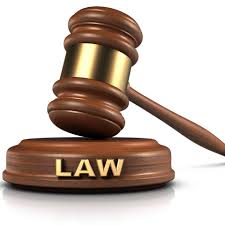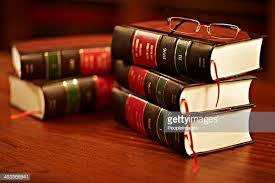English Legal Terminology Master 1 Family law 2nd Term
Topic outline
-
-
Forum
-
-
-

Contact formبطاقة تواصل
· Teacher: DEBIH Hatem
· Scientific rank: Senior lecturer class "A"
· Email: hatem.dabbih@univ-msila.dz
· Department: Law
· Faculty: law & political sciences
· Course: English Legal Terminology (Conference sans TD)
· Targeted Public (Students): 1st year Master's Family law
· Weekly hourly volume: 2.15
· Year: 2022-2023
-
-
-
Page

This Course is destinated to Master 1 Criminal law students
-
-
-

Objectives
This course has got many objectives such as:
· Various & rich program content.
· Too much of legal English vocabulary & lexical.
· Shed the light on different topics (public law).
· Teaching students the way they can use various & vast terms they got in their study.
-
-
-
This outline attempts to set forth the essential elements or characteristics of constitutional democracy. Democracy is government of, by, and for the people. It is government of a community in which all citizens, rather than favoured individuals or groups, have the right and opportunity to participate. In a democracy, the people are sovereign. The people are the ultimate source of authority.
In a Constitutional democracy the authority of the majority is limited by legal and institutional means so that the rights of individuals and minorities are respected. This is the form of democracy practiced in France, Great Brittan, Germany, Japan, the United States, and other countries.
This framework is intended to assist interested persons in various nations in establishing or improving curricular programs which foster an understanding of and support for constitutional democracy. The outline must be adapted to fit the circumstances and needs of individual political communities.
-
-
-
Its independence reconquered, Algeria was faced with an immense challenge: foundation of a
Nation. A real laboratory, it didn’t choose the simplest way. Identity issues, civil strife, struggles for power, the appearance of fundamentalism, the ravages of the planned economy, the Islamist insurrection… Algerians suffered greatly, but they never cess advancing. Enormous events have recognized Algeria since the revival of the notions of a modern State; we will try to analyze the political and constitutional chronology in Algeria.
-
-
-
Algeria's constitutional history shows that the process which led to the adoption of the form of the Constitutional Council went through many stages.
First, it was in 1963, following the elaboration of the country's first constitution, after independence that a Constitutional Council entrusted in accordance with articles 63
and 64 of the Constitution: "with ruling on the constitutionality of legislative laws and ordinances" was created. However, this Council was not put into place and it could not carry out its constitutional prerogatives due to the political situation which prevailed then.The second stage was the constitution of November 26th, 1976. It does not refer explicitly to constitutional review although it stipulates in its article 186 "political control vested in leading organs of the Party and the State shall be carried out in conformity with the national Charter and with the provisions of the Constitution".
-
-
-
وثيقة PDF Uploaded 11/02/23, 21:57
Governments perform three functions: executive, legislative, and judicial. In a political system with a strict separation of powers, these functions or powers are each earmarked to a distinct institution of Government. The major premise underlying the separation of powers is that individuals have the potential to harm others, and potential can become reality when power is concentrated in one person, faction, or institution. Thus, in separating powers, the major aim is to prevent tyranny and safeguard liberty by ensuring that no one can accumulate despotic powers. A further related aim is to ensure that laws are made in the interests of all by giving the law-making power to the people’s representatives in Parliament. Another is to ensure the accountability of government. For example, the legislature is accountable to the people for the laws it makes and the executive to the people and/or the legislature for the execution of those laws. A final aim is to ensure that government operates effectively and efficiently.
-
-
-
Until 1945, Algerian political parties included the Social French Party SFP (Parti Social Français: PSF) and the Popular French Party PFP (Parti Populaire Français: PPF), representing segments of the European settler population; the Algerian Comunist Party (Parti Communiste Algérien PCA), integrating educated Muslims, Jews, and Europeans; the Etoile NordAfricaine (ENA), the Algerian People Party (Parti du Peuple Algérien: PPA) and the Movement for the Triumph of Democratic Liberties (Mouvement pour le Triomphe des Libertés Démocratiques: MTLD), representing the parties and associations of Algerian nationalism. When the Algerian War of Independence commenced in November 1954, one major movement-party, the National Liberation Front (Front de Libération Nationale: FLN), became dominant. It incorporated under its wings nationalist movements and leaders of different generations; it even developed its own liberation army – the National Liberation Army (Armée de Libération Nationale: ALN). Only one movement sought to challenge, albeit with little success, the nationalistic monopoly of the (FLN). It was the National Algerian Movement (Mouvement Nationale Algérien: MNA), led by the veteran nationalist Messali al-Hadj.
-
-
-

1- BERMAN S, Democracy and Dictatorship in Europe: From the Ancien Regime to the Present Day (forthcoming, Oxford University Press, 2019).
2- DIAMOND L, The Spirit of Democracy: The Struggle to Build Free Societies Throughout the World (Henry Holt and Company, 2008).
3-Algeria' Country Report, on the link: https://bti-project.org/en/reports/country-report/DZA
4-Mustapha Menouer, Algérie 2019-2020 : crise de légitimité et solutions légales, link: https://journals.openedition.org/insaniyat/23408
5- Youcef Bouandel, Political Parties and the Transition from Authoritarianism: The Case of Algeria, The Journal of Modern African Studies
Vol. 41, No. 1 (Mar., 2003) , pp. 1-22link: https://www.jstor.org/stable/3876187
6- Bondy, William. The Separation of Governmental Powers: In History, in Theory, and in the Constitutions. Studies in History, Economics and Public Law, Vol. V, No. 2. New York, 1896
7- Fuzier-Herman, E. La séparation des pouvoirs d’après l’histoire et le droit constitutionnel comparé. Paris, 1880.
8- Wright, B. F. Jr. “The Origins of the Separation of Powers in America.” Economica, May 1933.
-
